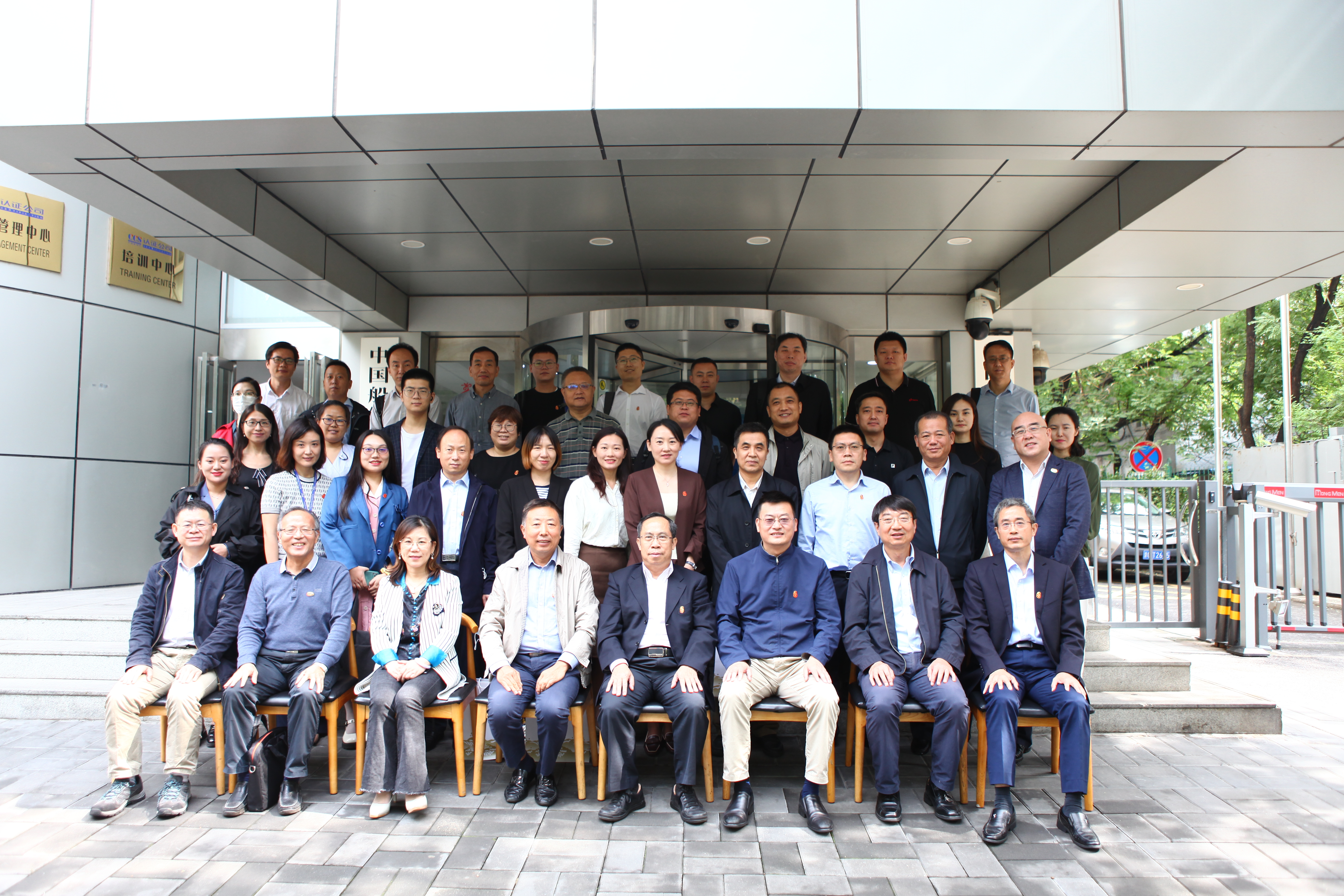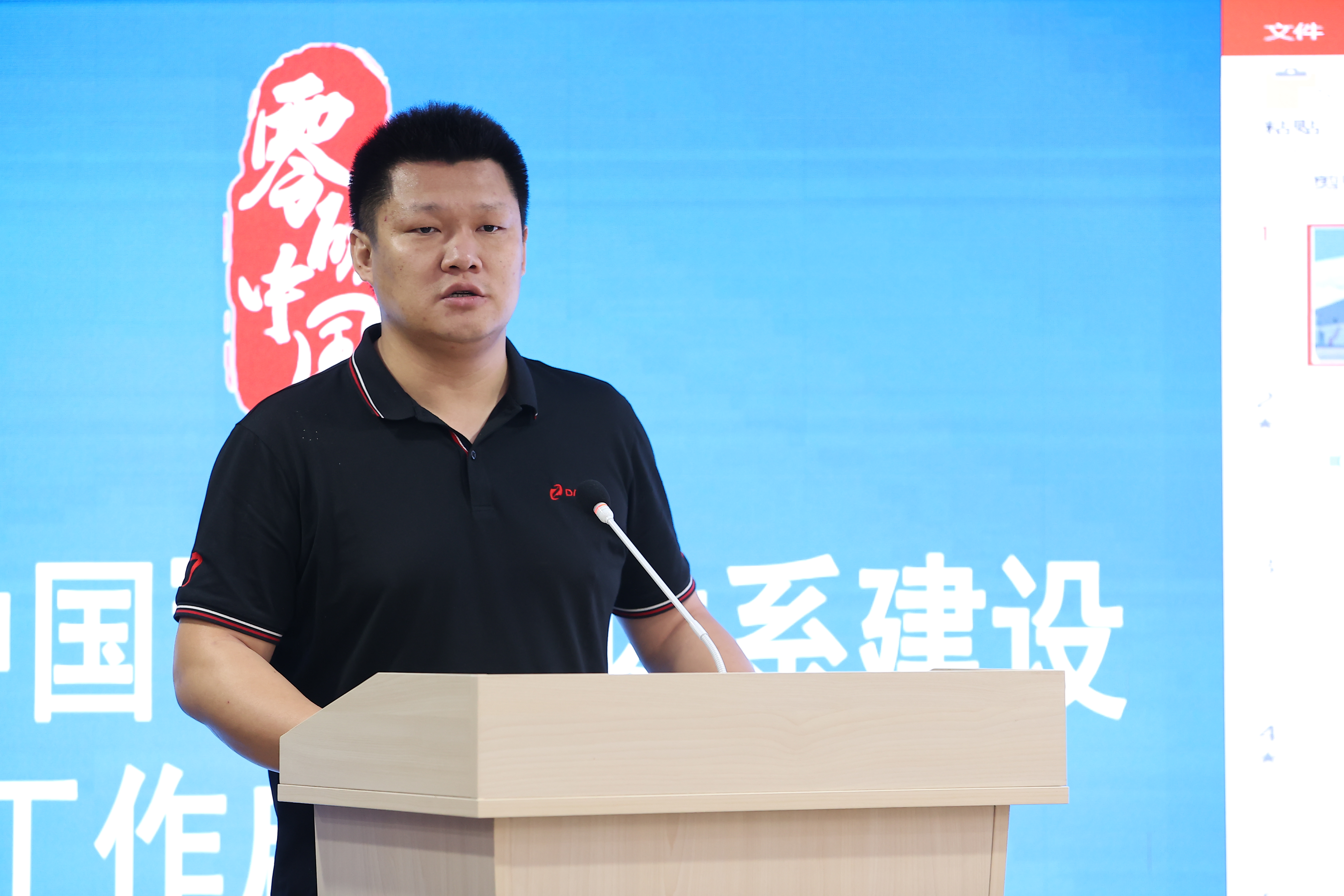Painting the Zero Carbon Picture, Embarking on the Green Journey - ZDATA Participates in the Launch Meeting of the "Zero Carbon China" Standard System Construction
On September 25, the launch meeting for the construction of the "Zero Carbon China" standard system, jointly organized by the Energy Investment Special Committee of the China Investment Association and China Classification Society Quality Certification Company, was successfully held in Beijing. Several leaders attended the meeting, including Shidinghuan, former counselor of the State Council and expert chairman of the Energy Investment Committee, Ling Lin, director of the Resource and Environment Branch of the China National Institute of Standardization, and Huang Shiyuan, chairman of China Classification Society Quality Certification Company. The event brought together government leaders, representatives from enterprise parks, research institute experts, scholars from higher education institutions, and more than a hundred guests to discuss the standards for zero-carbon actions.

As a representative of data center enterprises, ZDATA's Co-founder and CEO, Dong Yan, and Vice President Ma Chao were invited to participate and engaged in in-depth discussions with the attending experts. During the meeting, Dong Yan presented on the topic of "Exploration and Experimentation of 'Zero Carbon' Big Data Parks in the Context of Carbon Neutrality." He shared the current status, achievements, and reflections on low-carbon development around "zero-carbon data centers" with the guests. Dong also discussed how ZDATA is actively implementing energy substitution, technological innovation, energy management, and resource recycling to effectively achieve energy conservation and emission reduction. These efforts contribute to propelling the industry and clients towards the fast lane of "zero-carbon" development.
In today's context, data centers serve as crucial infrastructure for the operation of information systems in various fields and industries, playing a vital role in the development of the digital economy. However, with the establishment of the "3060 goal," data centers, being large energy consumers, face the imperative of effective carbon management as an integral part of achieving "dual carbon" goals.
As a leading provider of customized data center services, ZDATA has always prioritized green and energy-efficient initiatives throughout the entire lifecycle of data centers, including site selection, design planning, construction procurement, and ongoing operation and maintenance. For instance, during site selection, ZDATA prioritizes regions with abundant renewable energy resources. This not only significantly reduces carbon emissions through geographical and climatic advantages but also optimizes the efficiency of new energy utilization by leveraging stable local electricity and large-scale energy storage.
"Zero Carbon" presents both a new challenge and a new opportunity. ZDATA is adapting to the wave of "Zero Carbon" actions and plans to invest and cooperate in large-scale ground photovoltaic projects and energy storage projects in Shanxi. By optimizing data center power distribution structures and project investment structures, the company aims to transform internal cost investments in data centers into operational investments that can integrate with new energy sources and the local power grid.
The convening of this meeting marks the official launch of the construction of the "Zero Carbon China" standard system. In the next stage, the Energy Investment Special Committee of the China Investment Association will collaborate with relevant enterprises, research institutes, local governments, and other institutions, including ZDATA, to jointly develop standards and pilot demonstration projects for "Zero Carbon China." The goal is to advance research and development in low-carbon, zero-carbon, and negative-carbon technologies and achieve results. Together, they aim to explore the path of green development and create opportunities for sustainable development.
Recommended News
-
11/182025
Intelligent Computing Future, Innovation Leads | ZDATA Honored as "Leading Enterprise in the Field of Artificial Intelligence Computing Power"
Recently, the 12th Strong Nation Intellectual Property Forum and the 7th Science and Technology Innovation Forum were grandly held at the China Workers' Home in Beijing. -
06/072024
Ministry of Industry and Information Technology Announces 2023 National Green Data Center List, ZDATA Selected Consecutively


